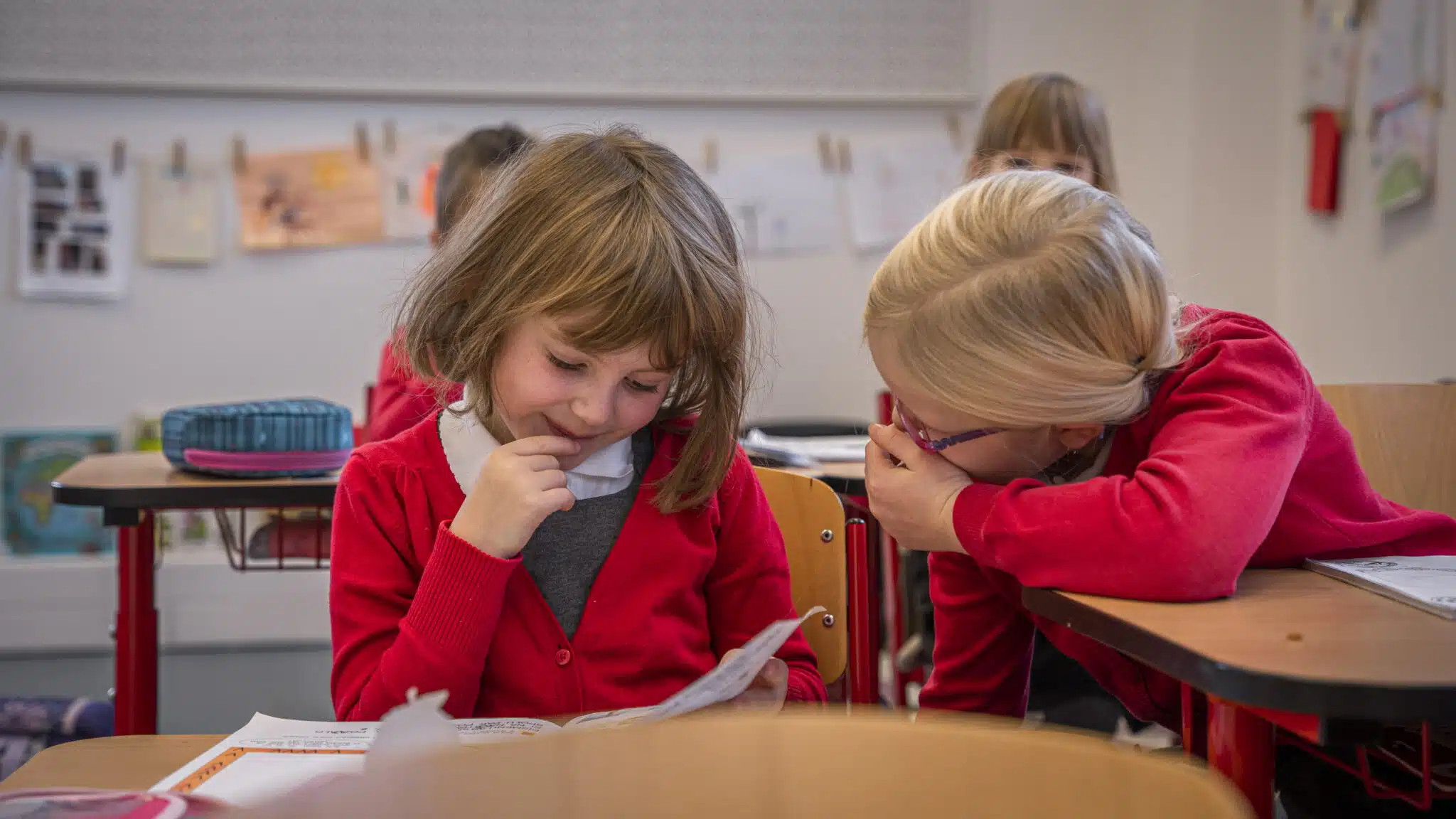The celebration of International Book Day reminds us every year of the magic of printed words and the benefits of reading. However, it also prompts reflection on the challenges we face in fostering the reading habit. In the current era dominated by screens, immediacy, and reduced attention spans, books serve as an antidote that helps us grow in patience, concentration, and imagination. The schools of the Parentes International Educational Network pay special attention to awakening a love for reading from the earliest educational stages.
One key aspect is undoubtedly fostering the reading habit from a playful perspective, moving away from mere obligation. As Jorge Luis Borges said, “The verb ‘to read’ is like the verb ‘to dream,’ and the verb ‘to love’ cannot bear the imperative.” Therefore, it is essential to understand reading as a form of entertainment, a way of enjoying oneself, and this perspective begins to be cultivated at home. Primarily, this is done through the example set by parents, with a dedicated reading corner in the living room or a specific time of the day reserved for storytelling.
However, for this effort, initiated at home, to be effective, it must find solid reinforcement in the classroom, especially during kindergarten and primary school. During these educational stages, reading promotion programs and activities aim to continue bringing students closer to the wonderful stories that books hold, teaching them to care for books and, above all, to love and enjoy them.
“The verb ‘to read’ is like the verb ‘to dream,’ and the verb ‘to love’ cannot bear the imperative.” (Jorge Luis Borges)
A strong reading habit significantly enhances the language and communication skills of a child: their vocabulary becomes richer, they demonstrate better oral and written expression, their comprehension improves, and they are pushed to reflect. Moreover, stories stimulate emotional intelligence and are beneficial for the development of empathy. In essence, reading is a gateway to discovering new worlds, a powerful stimulus to activate creativity in children, and cognitive development.
Here are some ideas to help promote reading in kindergarten and primary school classrooms:
-
Familiarize with Books
The necessary and evident condition for reading is to have books around, to be in contact with books. Therefore, it is important to reserve a corner of the classroom for a small library and plan moments when children can access them. Ensure you have visually appealing books, decorate this corner, and incorporate it into the dynamics of the class.
-
Staged Reading
It’s a fun way to bring stories to life. The teacher can stage the story by gesturing, acting while reading, or involving students to interpret different characters. Engaging the class in the action can include making them think of different endings or variations of the story, helping stimulate their imagination. With primary school children who have gained more reading fluency, dramatized readings or even recording them to create their audiobooks can be done.
-
Story Creation Workshop
Children are great storytellers who always surprise us with their innocence and originality. Give them the opportunity to materialize their stories into a book. The way to do this offers infinite possibilities, from a collaborative story where all students contribute a part of the plot with drawings or pictograms to stories inspired by drawings or objects. You can also involve families in this activity.
-
Mini Reading Club
Similar to adult book clubs, this space mainly involves analyzing the book and sharing the opinions and reflections of each member. However, when working with children, it’s important that this is done through fun activities, such as a trivia game about the plot, drawing alternative covers, or writing about what would have happened if a character from another story had joined the plot.
-
Great Reader Award
Positive reinforcement techniques are very effective in shaping behavior and establishing new habits and routines. The reading habit is no exception. A reward strategy could be creating a chart in the classroom with all the names of the students and the school weeks. For each book read, a sticker will be given that they can put in their cell. The student with the most books read will receive a small gift and the title of Great Reader of the Year.
The central focus of reading promotion activities is to involve students in the stories and worlds hidden in books. Reading is an intellectual activity that helps them mature neurologically and develop language, social, and emotional skills. Reading is more than a pastime: it is the best tool to preserve mental agility from childhood to old age, a great lifelong companion, an ever-open school.
